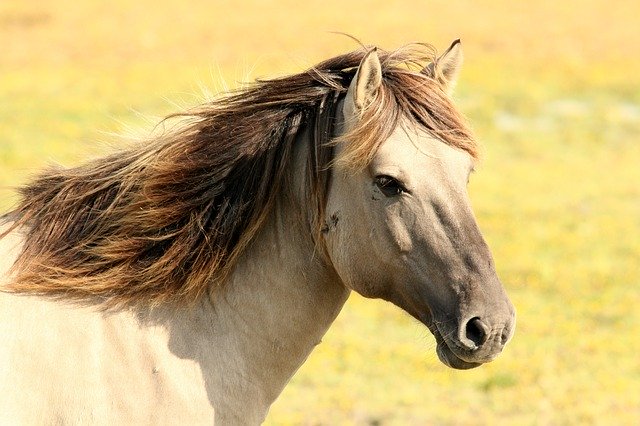We know that fibre is important to any diet including our horses’, but do you actually know what the real value of feeding fibre is and which is the best fibre-based horse feed for your horse? When it comes to feeding our horses, we can easily fall into the trap of attributing human emotions and feelings to them and as a result, feed them lots of coarse mixes as they are more appealing to us and so we think our horses will enjoy them more. But we have to consider that these are not the best options for our horse’s health and it is our responsibility to feed them as nature intended – like a horse!
What Are The Benefits Of Feeding Fibre To Your Horse?
There are several benefits to feeding fibre to your horse and it plays many important roles, not only as a source of nutrients but also for keeping the gut healthy. One benefit of fibre that isn’t always known is that it provides energy for your horse. What makes this energy particularly valuable is that it’s slow release energy, which is ideal for horses working at low intensities e.g. hacking or for prolonged periods such as endurance and hunting.
Horses don’t have the required digestive enzymes to break down fibre, but they do have plenty of bacteria in their hindgut that perform this role. As they do so, they release the energy from the fibre which the horse can then utilise. During the bacterial fermentation of fibre, vitamins including B1, vitamin K and biotin are produced.
During the winter months, when automatic water feeders and taps get frozen, it’s important to ensure that you horse gets enough water to stay hydrated in the colder weather. Fortunately, fibre can help to hold water in the gut, so it acts as a water reserve. What’s more, when the temperatures drop, fibre can help to keep your horse warm; when the fibre is digested in the hindgut through bacterial fermentation, the by-product of the process is heat, which can warm your horse up from inside.
Can You Just Feed Fibre To Your Horse?
When feeding your horse, you need to take a number of factors into consideration, including weight, workload, temperament and even their body condition. Every horse needs fibre in their diet, as the majority of horses and ponies are able to extract enough energy from fibre in order to maintain their body weight and support the work they are in. However, horses that are in harder and regular work, may need more energy and additional help to maintain their weight. In this case, you will need to consider feeding your horse a high energy source of fibre and maybe a high oil supplement such as micronised linseed to top up.
As the seasons change, horses tend to require a change to their diet. When changing their diet, even if it’s just from one form of forage to another, it’s imperative that the change is gradual over a couple of weeks, to reduce the risk of digestive upsets, such as colic.
What Happens If Your Horse Doesn’t Get Enough Fibre?
Not providing your horse with enough fibre can result in a variety of problems:
Colic – The horse’s digestive tract functions at its best when there is a continuous trickle of fibre being fed – being at grass is ideal as the horse can browse as much as they want. Too little fibre in your horse’s diet can result in build-ups of gas which can also lead to colic symptoms. If your horse has to be stabled for a period of time due to the weather or injury, offer forage on an ad-lib basis.
Gastric Ulcers – Fibre feeds take longer to chew than concentrates, generating more saliva, which in turn helps to buffer acidity in the horse’s stomach. What’s more, the fibre also prevents the acid from splashing up and damaging areas of the stomach that are vulnerable to developing ulcers when the horse is exercised.
Loose droppings – can also be an indication the horse is receiving too little fibre, as the fibre that isn’t digested gives the faeces structure.
As you can see, fibre plays a very important role in your horse’s diet. So, feed plenty of it to keep your horse healthy and happy!




